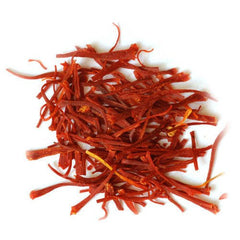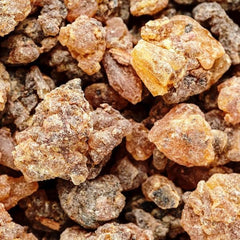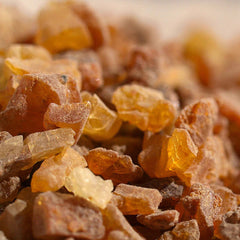Do Oriental Perfumes Smell Smoky?
Click For Affordable Inspired Perfume Alternatives
Perfume preferences are deeply personal, influenced by culture, history, and individual taste. Among the vast array of fragrances available worldwide, Oriental perfumes hold a special place for many enthusiasts. Known for their rich, exotic aromas, these fragrances evoke a sense of mystery and luxury. A common question that arises among those new to Oriental scents is whether they tend to smell smoky. The answer is nuanced, as it depends on the specific perfume composition and the ingredients used. In this article, we will explore the characteristics of Oriental perfumes, what contributes to a smoky scent, and whether smoky notes are a typical feature of this fragrance category.
Do Oriental Perfumes Smell Smoky?
Oriental perfumes are renowned for their warm, opulent, and often complex aroma profiles. They draw inspiration from the historical trade routes, spices, resins, and luxurious ingredients that characterized Eastern markets. When it comes to the question of smoky scents, the answer is that some Oriental perfumes do have smoky notes, but it is not a universal trait. Instead, smoky aromas are one of many facets that can be present within the broader category of Oriental fragrances.
To understand this better, it's essential to delve into what defines Oriental perfumes and what ingredients contribute to smoky scents. This will help clarify why some Oriental perfumes smell smoky, while others do not.
What Are Oriental Perfumes?
Oriental perfumes are a category of fragrances characterized by their warm, spicy, and often sweet or resinous scent profiles. They typically feature rich base notes that evoke a sense of luxury and depth. Historically, they originated from Middle Eastern, Indian, and Asian cultures, incorporating ingredients that were highly prized and exotic in Western perfumery.
Common characteristics of Oriental perfumes include:
- Warmth and richness: Often achieved through spices, resins, and vanilla.
- Complexity: Multiple layers of scent notes that evolve over time.
- Longevity: Typically long-lasting, making them suitable for evening wear or special occasions.
- Intensity: Bold and captivating aromas that leave a lasting impression.
Key ingredients often found in Oriental perfumes include amber, vanilla, incense, spices (such as cinnamon, cardamom, and clove), resins (like myrrh and frankincense), and exotic woods. These elements create a warm, enveloping aroma that is both sensual and luxurious.
What Contributes to Smoky Scents in Perfumes?
Smoky notes in perfumes are typically derived from specific ingredients that have an inherently smoky aroma or are processed to produce a smoky effect. Some of these components include:
- Incense and Frankincense: Known for their resinous, smoky scent, often used in both religious and perfumery contexts.
- Myrrh: Resin with a warm, smoky, and slightly medicinal aroma.
- Burnt or Charred Woods: Such as guaiac wood, agarwood (oud), and smoky vetiver, which evoke the scent of burnt wood or embers.
- Smoked Spices: Certain spices, when roasted or processed, can impart a smoky nuance.
- Coal Tar or Charcoal Notes: Occasionally used in niche fragrances for an explicit smoky profile.
In perfumery, smoky notes are often used to add depth, mystery, and an exotic quality to a fragrance. They can be bold and intense or subtle and refined, depending on the concentration and combination with other notes.
Are Smoky Notes Common in Oriental Perfumes?
While some Oriental perfumes feature prominent smoky notes, it is not a defining characteristic of the entire category. Instead, Oriental fragrances are diverse, ranging from sweet and floral to spicy and resinous, with some leaning heavily into smoky territory and others embracing softer, more floral or fruity profiles.
Perfume houses often incorporate smoky elements to evoke the mystique and allure associated with Eastern cultures. Notable examples include:
- Oud-based fragrances: Oud (agarwood) is a highly prized ingredient that can range from sweet and woody to intensely smoky, depending on its origin and processing.
- Incense-heavy perfumes: Fragrances infused with frankincense or myrrh often carry a smoky undertone.
- Spiced and resinous scents: These can include smoky nuances, especially when combined with smoky woods or resins.
However, many Oriental perfumes focus more on sweet, spicy, or floral notes without any smoky elements. The presence or absence of smoky scents depends heavily on the specific fragrance composition and the artist's intent.
Examples of Oriental Perfumes with Smoky Notes
If you are curious about Oriental perfumes that feature smoky aromas, here are some notable examples:
- Tom Ford Oud Wood: Combines oud with smoky, woody notes for a luxurious, intense scent.
- Maison Francis Kurkdjian Oud Satin Mood: Features rich oud with smoky undertones, balanced with floral and sweet notes.
- Amouage Interlude Man: Known for its complex blend of spices, resins, and smoky incense.
- Byredo Oud Immortel: Incorporates smoky oud with earthy, woody notes.
These fragrances showcase how smoky elements can enhance the depth and complexity of Oriental perfumes, creating a captivating sensory experience.
How to Identify Smoky Notes in Perfumes
Recognizing smoky notes in a perfume requires attention to its scent profile and development over time. Here are some tips:
- Listen to the fragrance description: Perfume descriptions often mention smoky or incense notes if present.
- Pay attention to the initial opening: Smoky notes may be prominent at first or develop after the dry-down.
- Notice the base notes: Smoky elements tend to linger, especially in the dry-down phase of the fragrance.
- Experience the aroma in a well-ventilated space: This helps to distinguish smoky notes from other spicy or resinous scents.
Understanding these cues can help you select Oriental perfumes that include the smoky nuances you desire or avoid.
Conclusion: Do Oriental Perfumes Smell Smoky?
In summary, Oriental perfumes encompass a broad spectrum of scents, from sweet and floral to spicy and resinous. Some of these fragrances feature smoky notes, derived from ingredients like frankincense, myrrh, oud, and smoked woods, which lend an exotic, mysterious aura to the scent. However, smoky notes are not a mandatory characteristic of Oriental perfumes; many showcase warm, sweet, or spicy aromas without any smoky undertones.
If you are drawn to fragrances with smoky nuances, exploring Oriental perfumes with oud or incense can be an excellent choice. Conversely, if you prefer softer, less smoky scents, numerous Oriental fragrances focus on sweeter or more floral components. Ultimately, whether an Oriental perfume smells smoky depends on its specific composition and your personal preference. Sampling different fragrances will help you discover the perfect scent that aligns with your taste and desired aromatic profile.
Buy Perfumes - Best Online Retailers
Click For Affordable Inspired Perfume Alternatives
Click For The Best Niche Perfumes & Decants
Pheromone Perfumes - Confidence, Attraction & Appeal - Click For More
Home Fragrances & Candle Warmers - Click To Scent Up Your Spaces Today!



